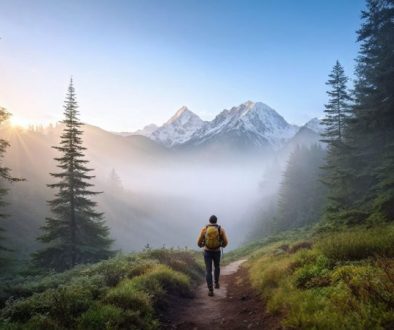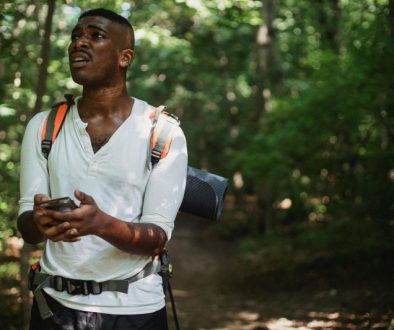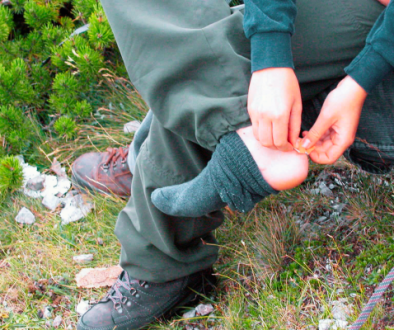Quick Post Hike Recovery: From Trail to Total Relief

Hiking is one of the best ways to connect with nature and stay fit. But let’s be honest: those aching muscles and fatigue after a long trek can take the fun out of it. Post hike recovery isn’t just about feeling better, it’s essential for preventing injuries and ensuring your body is ready for the next adventure. Whether you’re tackling rugged trails in Australia or enjoying coastal walks, these recovery tips will help you bounce back quickly and keep hiking for years to come.
Why Post Hike Recovery Is Important

The Role of Post Hike Recovery
- Prevents Injuries: Hiking strains your muscles and joints. Proper recovery reduces the risk of overuse injuries.
- Boosts Performance: Taking care of your body post-hike improves strength and endurance for future trails.
- Supports Overall Health: Recovery helps repair muscles, replenishes energy, and reduces inflammation.
Signs You Need Better Recovery Practices
- Persistent muscle soreness
- Fatigue lasting more than two days
- Joint pain or stiffness
Immediate Recovery Steps After a Hike
Cool Down Properly
- Take a 5-10 minute walk at a slower pace to lower your heart rate.
- Perform light stretches targeting your legs, hips, and back. Focus on hamstrings, calves, and quadriceps.
Stay Hydrated
- Replenish lost fluids with water or an electrolyte drink.
- Avoid alcohol immediately after hiking as it can dehydrate you further.
- Pro tip: Coconut water or sports drinks with electrolytes are excellent choices.
Refuel Your Body
- Eat a balanced meal within two hours of hiking.
- Include protein for muscle repair and complex carbohydrates for energy restoration.
- Example: Grilled chicken, sweet potato, and a side of vegetables.
Techniques to Soothe Sore Muscles

Stretching and Yoga
- Gentle yoga poses like downward dog and child’s pose can alleviate tension.
- Static stretches for 20-30 seconds improve flexibility and prevent stiffness.
Try Foam Rolling
- Use a foam roller to target tight muscles in your legs, back, and hips.
- This increases blood flow and speeds up recovery.
Cold and Heat Therapy
- Cold Therapy: Apply an ice pack to sore areas for 15-20 minutes to reduce inflammation.
- Heat Therapy: Use a warm compress or take a hot bath to relax tight muscles.
Bonus Tip: Epsom Salt Baths
- Adding Epsom salts to your bath can help reduce muscle soreness. Magnesium in the salts supports muscle recovery.
Nutrition Tips for Recovery After Hiking
Foods That Aid Recovery
- Protein: Lean meats, eggs, and plant-based options like lentils aid muscle repair.
- Carbs: Whole grains and fruits replenish energy reserves.
- Healthy Fats: Avocados and nuts reduce inflammation.
The Role of Antioxidants
- Berries, spinach, and nuts contain antioxidants that combat free radicals produced during exercise.
- These foods also reduce inflammation and speed up healing.
Hydration Beyond Water
- Coconut water and herbal teas are excellent for hydration.
- Avoid sugary drinks as they can slow recovery.
Long-Term Recovery Habits
Prioritise Sleep
- Aim for 7-9 hours of sleep to allow your body to repair and grow stronger.
- Keep a consistent sleep schedule for better recovery.
Build Strength Between Hikes
- Include strength training exercises like squats and lunges in your routine.
- Yoga and Pilates can also enhance flexibility and reduce muscle imbalances.
Listen to Your Body
- Don’t ignore signs of overtraining, such as persistent pain or fatigue.
- Give yourself rest days to allow full recovery.
Common Recovery Mistakes to Avoid
Skipping Cool-Downs
- Cooling down helps transition your body from activity to rest. Skipping it can lead to stiffness and soreness.
Not Refuelling Properly
- Hiking depletes your energy stores. Neglecting nutrition can delay recovery and weaken your performance.
Overtraining Without Rest
- Rest days are crucial. Hiking too often without recovery increases injury risk.
Conclusion
Recovery after hiking is more than just a break. It’s a must do step to staying healthy and avoiding any injuries before and after hiking. My main recovery for after a hike definitely happens away from hiking itself. I do weight/resistance training and conditioning, with this mixed with hiking conditioning definitely gets your body right for any challenge a trail may surprise you with.
By cooling down, staying hydrated, fuelling your body, and adopting muscle recovery techniques, you’ll feel better faster and be ready for your next adventure. Remember, listen to your body and make recovery a priority.
Start implementing these tips and enjoy hiking without the post adventure aches!
Disclaimer
This article is for informational purposes only and should not be considered medical advice. Consult a healthcare professional for personalised guidance on recovery and injury prevention.
Resources




